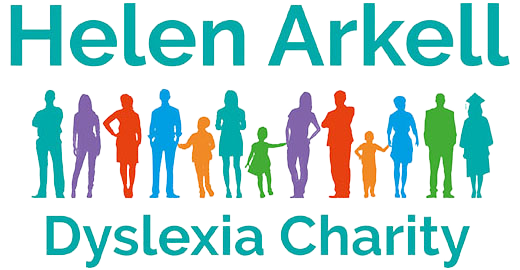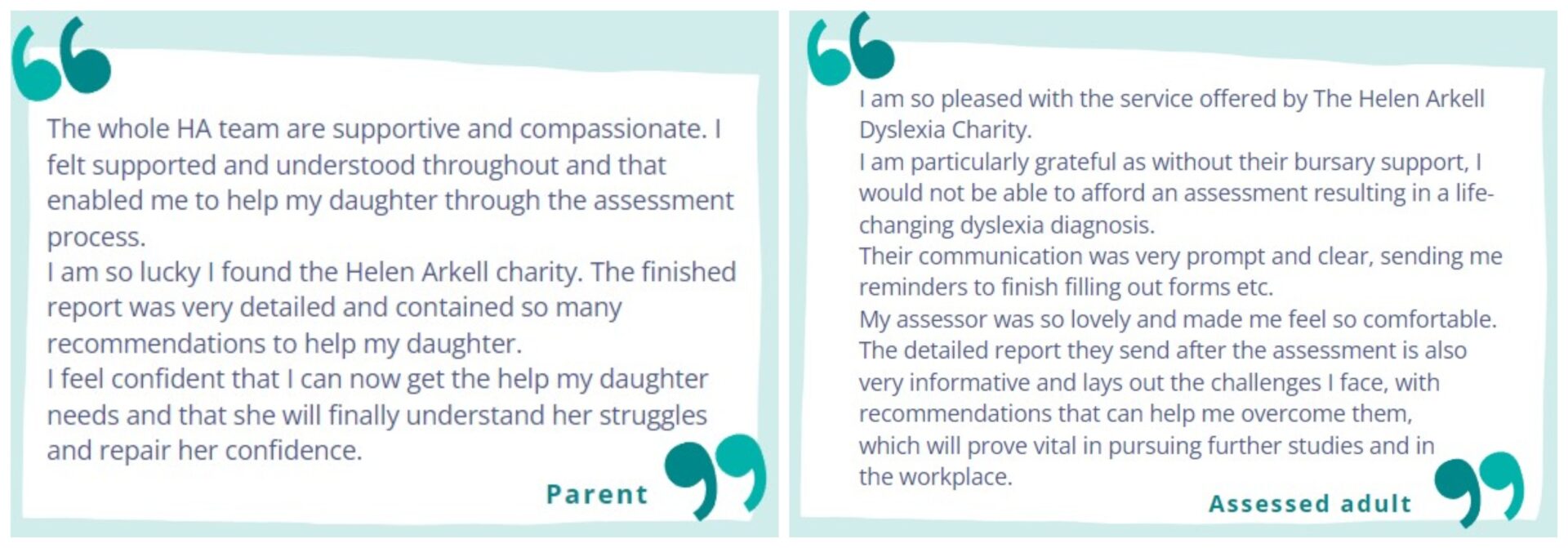Why choose a Helen Arkell dyslexia assessment?
Why choose a Helen Arkell dyslexia assessment?
There are plenty of reasons to choose a dyslexia assessment from Helen Arkell:
• We have over 50 years of pioneering dyslexia experience.
• The assurance of the highest quality dyslexia assessment; we only employ highly qualified and experienced specialist assessors and educational psychologists. Everyone is required to take Continuing Professional Development courses and workshops to keep their skills up to date.
• Our team of assessors share their experience and knowledge. Each one is peer mentored and supported by Helen Arkell specialist staff.
• We have a variety of options for your dyslexia assessment; where appropriate, you can have an online assessment. If a face-to-face assessment is required, we offer these at a variety of locations across the south of England and the Midlands.
• We can see you quickly! For most assessments, you can be seen as soon as the paperwork is done.
• As well as dyslexia assessments, we offer top-up dyscalculia assessments for primary-age children and non-diagnostic Learning Literacy Assessments for children under eight.
• When we send you an assessment report for your child, we include a personal letter to your child from the assessor, explaining the outcome of the assessment in a way they will understand.
• Helen Arkell is a widely respected name in the world of dyslexia and education. Teachers have confidence in an assessment report’s findings and recommendations.
• You will benefit from a wide range of follow-up services including specialist tuition, parents’ and children’s courses and a range of books and learning resources to help with home study.
If you are unsure whether an assessment is needed for your child, book a specialist parent consultation to discuss the next steps. If you go on to book an assessment, the consultation fee will be deducted from the assessment fee.
We want everyone to be able to access dyslexia support. We offer bursary funding for our dyslexia assessments and some other services to low-income families. We also offer the option to pay for a dyslexia assessment in instalments.
By choosing Helen Arkell, you are helping us to support other children and adults with dyslexia.









